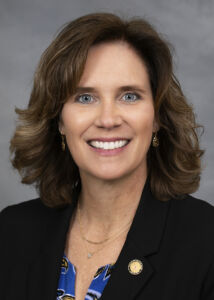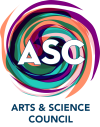2022 Candidate Questionnaire – North Carolina Legislature
Ahead of Election Day 2022, candidates running for election for the North Carolina Legislature were provided a five-question survey to complete and share their position on arts and culture. Below are the verbatim responses we received, grouped by question.

NATASHA MARCUS (State Senate, District 41): ASC brought dancers to the Ada Jenkins Center in my town, Davidson, prior to the pandemic. It was for a cultural sharing event, with dancers from various traditions. It was the first time I’d ever seen that happen. (I have been a volunteer for more than 10 years and even worked at the Ada Jenkins Center for a year and a half before I was elected to the NC Senate.) The historic building, staff, clients and neighbors of the Center are all meaningful to me. ASC’s program at the Center was a wonderful way to connect with all the people while we enjoyed dance performances in a variety of styles. And when it ended, two little girls left their parents and did their own partner dance in the space that had been the stage. They were swept up in the joy of dancing and it was beautiful to witness. I asked if I could take their picture to remember their “performance,” and they and their parents seemed so pleased to have their dancing appreciated. The crowd was a diverse group economically and racially, but that day we all bonded about how much the arts meant to us as children and even as adults.
Last night, I attended the unveiling of the new ARTS+ space and was inspired to hear from the teacher who got her start in the arts when she was a student at ARTS+ years ago. She was excited about sharing her love of the arts with a new generation of students.
As the community’s Local Arts Agency, ASC’s focus is to serve all residents of Mecklenburg County, the city of Charlotte and the six suburban towns, by investing in high-quality cultural programming that is diverse, relevant, resident-informed, and available to all. We intentionally center community, start with partnership (create with, not for), and advocate for equitable distribution of government funds.
What are your arts and culture priorities, and how do you intend to promote or pursue those priorities if elected? (For example: advocate for increased investment, attend cultural events or Culture Blocks programs, volunteer to sit on a grant review panel, or connect with your appointees to ASC’s geographic Advisory Councils)
NATASHA MARCUS (State Senate, District 41): As the Senator for North Mecklenburg and Northwest Charlotte, I’ll advocate for art that is accessible to people in my areas (outside of uptown Charlotte) and that is culturally relevant. As a member of the Arts and Science Caucus in the NCGA, I try to stay up to date about the ways in which the state funds the arts and they ways in which the state could and should do more. I would like to expand the grant programs the state offers. I personally love live theatre and dance performances and try to attend performances in and around my district as much as possible. I also support keeping and expanding arts education in public schools.
Community Ties: Understanding What Attaches People to the Place Where They Live, an in-depth study published by the Knight Foundation and Urban Institute in May 2020, reports that a community’s residents’ access to arts and culture not only boosts feelings of satisfaction and lifestyle fit, but also correlates with greater investment of time and resources in that community. This investment metric includes participation in local activities, attending public meetings, owning a home or local business, donating, and volunteering.
Easy access to arts and cultural activities is reported by people in low-income households less frequently (67%) than by those in high-income households (78%). Additionally, only 64% of Black residents and 66% of Hispanic residents report easy access to arts and culture, compared to 74% of white residents and other racial and ethnic groups. In the Charlotte-Mecklenburg metropolitan area, arts and cultural activities are perceived as the fourth most difficult quality feature to access in our community, after affordable housing, transit options, and job opportunities.
ASC recognizes that systemic, inequitable access to opportunity has led to generations of unjust outcomes for those who have been historically marginalized in mainstream arts and cultural funding, discourse, leadership and resource allocation. We strongly encourage all who serve or seek to serve our community to read ASC’s inaugural Cultural Equity Report, which reflects the steps – and missteps – we have taken on our journey to becoming a more equitable organization and holding ourselves accountable to the community.
How will you join ASC in actively addressing inequities in access to arts and culture?
NATASHA MARCUS (State Senate, District 41): Art should be by local and diverse artists and speak to those populations as well. The Black Lives Matter street painting was a wonderful example of a project that got so many things right. It allowed community expression of emotion through art, from many and diverse local artists, and created a sense of place and something to celebrate and appreciate. It made me proud to be from here. I know that it also sparked controversy and anger in some people, but meaningful art often does that. One way I supported that project specifically was to post about it on my social media platforms and encourage others to donate to the artists, which I did as well. I also enjoyed the community dinner and drum circle, where we got to make music and have a meal all together in the middle of the street, while we watched various performers. I hope that we can do more projects with deep meaning and community ties like those.
We need to encourage and fund art and music education for young people too, so they can find and develop their talents. Finally, underinvested communities should be able to compete for grants and other support on an even playing field and I applaud the ASC’s commitment to that goal.
ASC’s 2020 COVID-19 impact survey showed that more than 90 percent of local artists have been negatively impacted by COVID-19 and experienced a loss of income. The financial impact of COVID-19 on the sector has deeply impacted the livelihood of Mecklenburg’s creative workforce and the economic future of local creatives and cultural sector employees.
It is important to the workers of this sector that elected officials make efforts to understand and address their specific interests and needs.
As an elected official, how will you consider, utilize, and support the creative workers of the cultural sector?
NATASHA MARCUS (State Senate, District 41): I know that many artists work on a gig basis/self-employed status, which made it difficult for them to collect unemployment during the pandemic. I helped many constituents apply and qualify for benefits during the pandemic. I also fought for better unemployment benefits because NC is among the stingiest states in the nation. I supported using COVID relief money to support shuttered performance venues and the workers because we could not allow them to all close down and disappear. We need the arts to still be here when we come out of this pandemic. Rebuilding the arts economy helped us rebuild the full economy, since art patrons often also support nearby restaurants, shops, venues, etc. If there are other ways we can help at the state level, I am open to hearing about it.
The U.S. Bureau of Economic Analysis reports that the arts and culture sector contributes $16.5 billion to North Carolina’s economy, representing 2.8% of the state’s GDP and 115,891 jobs in 2020. According to the most recent Arts & Economic Impact Study, nonprofit arts organizations in NC generated $2.1 billion in economic activity annually and generated $201.5 million in state and local government revenue in 2015.
In FY22, ASC invested $1.5 million in nonprofit organizations of all sizes and a historic $1.7 million to support the creative individuals and artists whose work is strengthening Charlotte-Mecklenburg’s cultural community. Funding supported community programming, cultural education in schools, and direct investment in creative practices and organizational capacity. Support from the North Carolina Arts Council through the Grassroots Arts Program and Artist Support Grant Program played a critical role in ASC’s capacity to make these investments, and the increased state funding allocated to ASC in FY23 is allowing us to deepen such investments and to provide new opportunities for creatives and non-profit cultural organizations to invest in their own capacity. Funding allocated to the NCAC by the State Legislature is a valued source of public support for arts and culture in Charlotte-Mecklenburg.
If elected, to what extent will you support increasing public funding of arts, science and history programs through state funding to the North Carolina Arts Council and, in turn, Local Arts Agencies like the Arts & Science Council? Please explain your answer.
NATASHA MARCUS (State Senate, District 41): We have a massive state budget surplus and I believe we should use that money to expand art, science and history programs in NC. The NCGA has made some big investments in the state museums and arts programs in Raleigh (new Dinosaur Exhibits and the Carolina Ballet for example), and that’s great, but I’d like to see more funding for programs in Mecklenburg (my district) and other communities outside of Raleigh.
The following candidates did not have campaign contact information available via the Board of Elections or were unable to be reached at the phone number or email address provided.
Anne Marie Peacock (NC House of Representatives, District 88)
Mary Belk (NC House of Representatives, District 88)
Mario J. Robinson, Sr. (NC House of Representatives, District 92)
Terry Brown (NC House of Representatives, District 92)
Christy Clark (NC House of Representatives, District 98)
John R. Bradford III (NC House of Representatives, District 98)
Nasif Majeed (NC House of Representatives, District 99)
Michael Anderson (NC House of Representatives, District 99)
John Autry (NC House of Representatives, District 100)
Carolyn G. Logan (NC House of Representatives, District 101)
Steve Mauney (NC House of Representatives, District 101)
Becky Carney (NC House of Representatives, District 102)
Cynthia Eleanor Clementi (NC House of Representatives, District 102)
Bill Brawley (NC House of Representatives, District 103)
Laura Budd (NC House of Representatives, District 103)
Brandon Lofton (NC House of Representatives, District 104)
Don Pomeroy (NC House of Representatives, District 104)
Wesley Harris (NC House of Representatives, District 105)
Joshua Niday (NC House of Representatives, District 105)
Carla Cunningham (NC House of Representatives, District 106)
Karen Henning (NC House of Representatives, District 106)
Mark Alan Cook (NC House of Representatives, District 107)
Kelly Alexander (NC House of Representatives, District 107)
Tricia Cotham (NC House of Representatives, District 112)
Tony Long (NC House of Representatives, District 112)
Vickie Sawyer (State Senate, District 37)
Mujtaba A. Mohammed (State Senate, District 38)
Mark Robeson (State Senate, District 39)
DeAndrea Salvador (State Senate, District 39)
Bobbie Shields (State Senate, District 40)
Joyce Waddell (State Senate, District 40)
Bonni Leone (State Senate, District 41)
Rachel Hunt (State Senate, District 42)
Cheryl Russo (State Senate, District 42)

